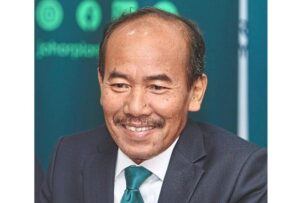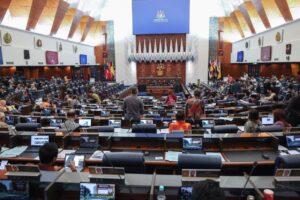
IPOH: Charging underaged girls involved in “consensual” statutory rape cases is counterproductive and ethically indefensible.
Wanita MCA chairman Datuk Wong You Fong said such a move was an alarming step backwards, as it punishes the victim for a crime committed against them.
“The suggestion is deeply troubling, and also reflects a serious miscomprehension of gender equality and existing laws including the Penal Code, Sexual Offences Against Children Act and other related legislations.
“Statutory rape, by definition, involves minor girls who cannot legally consent to sexual activity,” she said in a statement on Monday (Sept 22).
“This legal safeguard exists precisely because children and adolescents lack the maturity, autonomy, and understanding to fully assess the implications of such acts.
“The moment a child or teenager is involved, the law presumes vulnerability, and accurately so,” she added.
Wong was commenting on the controversial suggestion by Kelantan police chief Comm Datuk Mohd Yusoff Mamat made recently.
Wong said underaged girls are likely victims of grooming and manipulation.
“It fails to grasp the psychological, social, and legal complexities of child grooming,” she said.
“When a minor is groomed by an adult, often through online platforms and social media, and physical acquaintanceship – they are manipulated, coaxed or even threatened into believing the relationship is consensual.
“These are not relationships of equals. They are predatory dynamics masked as consensual interaction,” she added.
Wong said the police, as law enforcers, are to protect the vulnerable, not re-victimise them.
“Child grooming is a serious issue, and any proposal that shifts blame onto children shows a deep failure in understanding the core purpose of child protection laws.
“Instead of criminalising underage girls which leave them with lifelong stigma, we must focus on comprehensive education and preventive measures,” she said.
“The solution lies in equipping children and teenagers with the knowledge and tools to recognise grooming – whether it begins in person, via a simple ‘hi’, or through online flattery on social media,” she added.
Wong said the police need to collaborate with other agencies or ministries to fight against child grooming.
She said compulsory education modules in schools that focus on identifying grooming behaviours, asserting personal boundaries, and learning how to say “no” can be created.
“Engage with teachers, school counsellors, and parents to build a supportive ecosystem where children feel safe reporting concerns.
“Tailor the curriculum to be culturally and religiously sensitive, while remaining grounded in the principles of child safeguarding and empowerment,” she said.
“The Malaysian Communications and Multimedia Commission and the Communications Ministry can produce and distribute public service infographics and videos on spotting signs of grooming both online and offline.
“Awareness campaigns across social media platforms can also be launched, while also ensuring these platforms take proactive steps to report and prevent grooming content,” she added.






